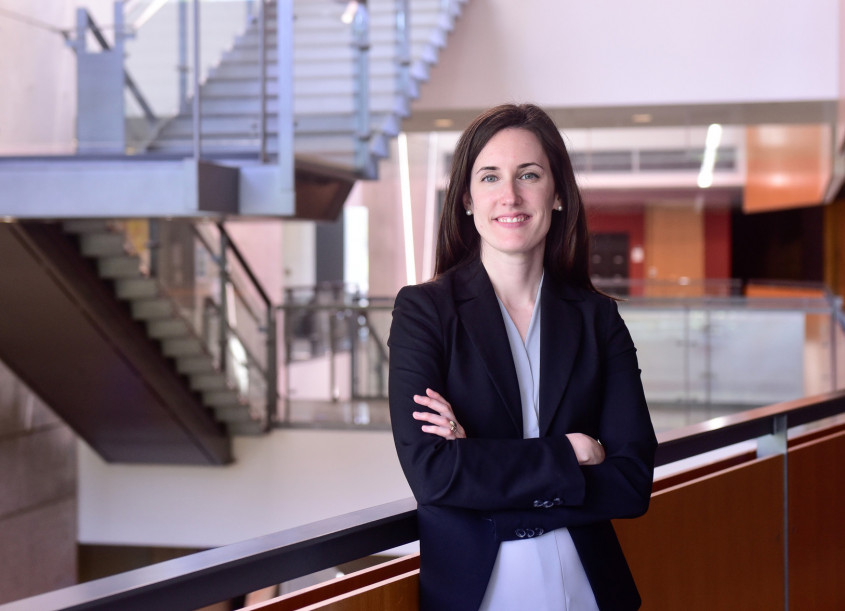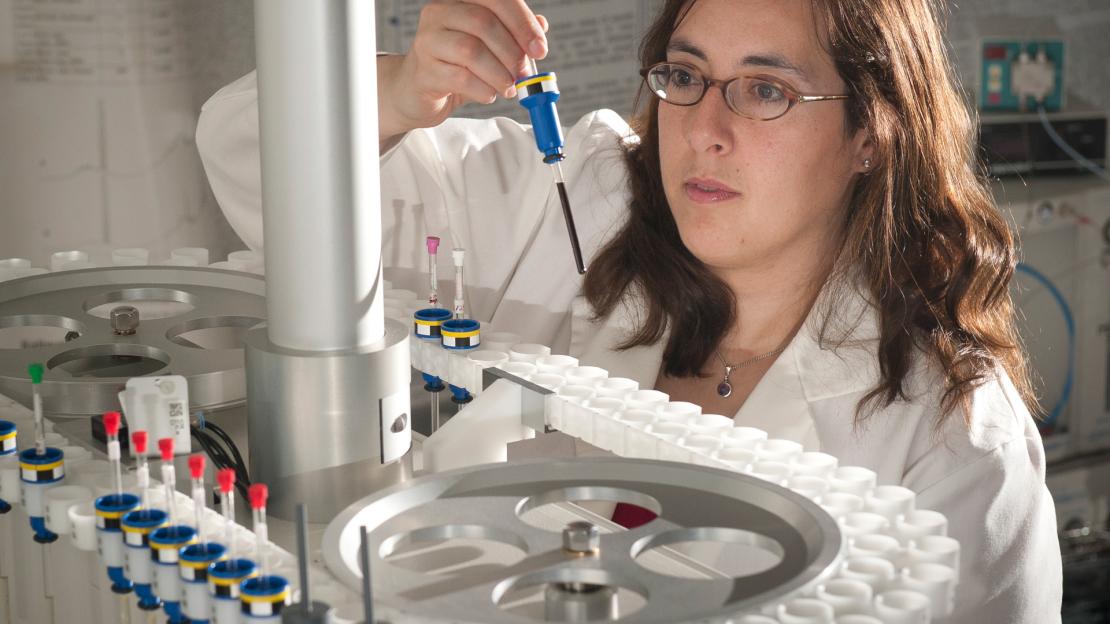One is an environmental chemist whose research looks at fundamental soil processes for ways to solve critical environmental challenges.
The other is a perinatal epidemiologist, whose research looks at maternal and child health with a focus on populations with disabilities and chronic disease.
Together they are U of T Scarborough’s newest Canada Research Chairs. Professor Myrna Simpson (Department of Physical & Environmental Sciences), and Assistant Professor Hilary Brown (Department of Health & Society) join 21 other researchers in becoming new Canada Research Chairs at U of T.
Simpson’s research explores environmental processes at the molecular-level and investigates ways that information can be used to improve ecosystem health and sustainability.
“I am truly honored to receive the Tier 1 Canada Research Chair, and am especially thankful to the international scholars who supported my nomination by the University of Toronto,” she says.
Simpson, who is the Associate Director of the Environmental NMR Centre at UTSC, explains that her Tier 1 Canada Research Chair in Integrative Molecular Biogeochemistry will focus on studies of human-made impacts on soil carbon stabilization and destabilization in several forests around the world.
“By using an integrative molecular biogeochemistry approach, these studies will for the first time unravel the complexity of these processes with the sole purpose of improving the fundamental understanding of soil carbon storage in our changing world.”
Created in 2000, the Canada Research Chairs program is a central part the federal government’s strategy to make Canada a leader in research and development. It seeks to attract and retain researchers in engineering and the natural sciences, health sciences, humanities and social sciences.
The chairs selected are considered to be leaders in their respective fields who not only achieve research excellence, but will also train the next generation of promising researchers through teaching, coordination and supervision of their work.
“As a first generation Canadian and a minority in a STEM field, I look forward to continuing to mentor excellent students and postdocs who may not necessarily realize their own potential,” says Simpson. “I hope to be a role model for the next generation of scientists.”
Brown’s research focuses particularly on the influence of maternal chronic medical conditions and disabilities on preconception, pregnancy and postnatal health outcomes.
“It is an honour to have this capacity to expand my research program and provide important new training opportunities to students,” says Brown, an expert on reproductive, maternal and child health.

She says her Tier 2 Canada Research Chair in Disability and Reproductive Health will improve our understanding of the sexual and pregnancy-related health outcomes and health care experiences of women with disabilities.
“This is a group whose reproductive health needs have historically been overlooked by the health care system. I hope that this research will ultimately result in health care services that are more responsive to the unique reproductive health needs of women with disabilities.”
